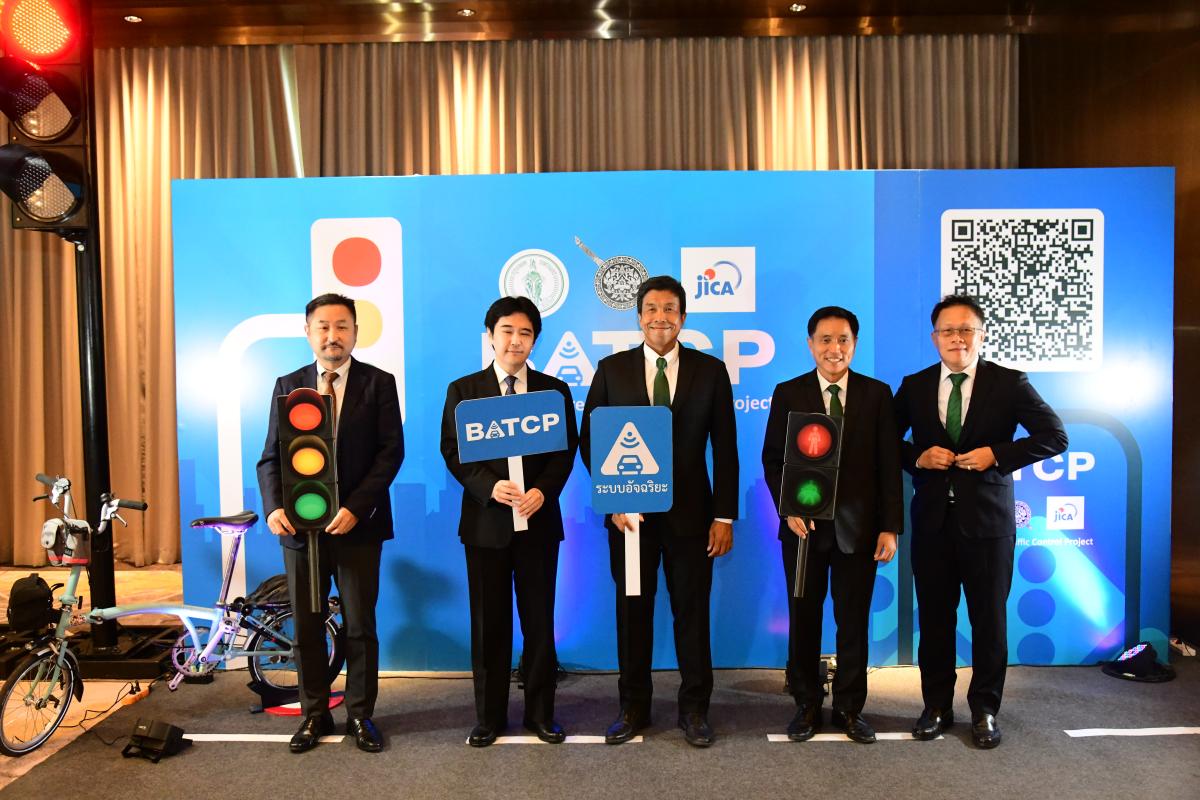The Bangkok Metropolitan Administration (BMA) has launched its new Area Traffic Control (ACT) system on four key roads in the capital in a bid to make traffic management more efficient.

The Bangkok Area Traffic Control Project (BATCP) was officially launched on Monday by governor Chadchart Sittipunt at the Eastin Grand Hotel Phaya Thai.
Chadchart told the press that initially the ACT system will control 13 traffic lights and lights at four pedestrian crossings on Rama VI, Ratchawithi, Phaholyothin and Pradiphat roads. The system will work under the supervision of the BMA’s Traffic and Transport Department.
With the first test run on Phaholyothin Road showed a 15% improvement in traffic flow and the BMA hopes to expand the project to the city’s 500 traffic lights.
“The ACT system uses ultrasonic sensors and CCTV cameras to monitor traffic conditions in real-time, sending data to the command centre via fibre optic cables,” the governor said.
“The centre will employ an advanced algorithm called ‘Moderato’ to analyse traffic data and calculate optimal timings for traffic and crossing lights, before sending a signal for controlling lights at each location accordingly.”
Chadchart added that the system’s aim is to support the work of traffic police and ensure roads are fully utilised to maximise traffic flow while ensuring pedestrians’ safety.
“The system can also record traffic conditions and light operations, and use this data to analyse and improve its algorithm accordingly,” he added. “It’s a historic day for Bangkok as we take an important step towards fixing its legendary traffic problems.
“Hopefully, BATCP will help return the time Bangkokians spend stuck on roads, and move us closer to becoming a leading metropolis in the region.”
The governor then thanked partner agencies that have been working with the BMA since 2018 to make this project a reality. The Japan International Cooperation Agency (JICA) and the Japanese Embassy have been long-time supporters of the project.
Chadchart added that the BMA is looking into ways of using alternative equipment to cut down costs, such as using GPS data fed through fibre-optic networks instead of installing additional ultrasonic sensors. This would help speed up the implementation of ACT across larger areas.
BATCP was born after the BMA’s Traffic and Transport Department, the Metropolitan Police Bureau and JICA signed a memorandum of understanding on December 13, 2018, to find ways to fix traffic problems in the metropolitan area.




